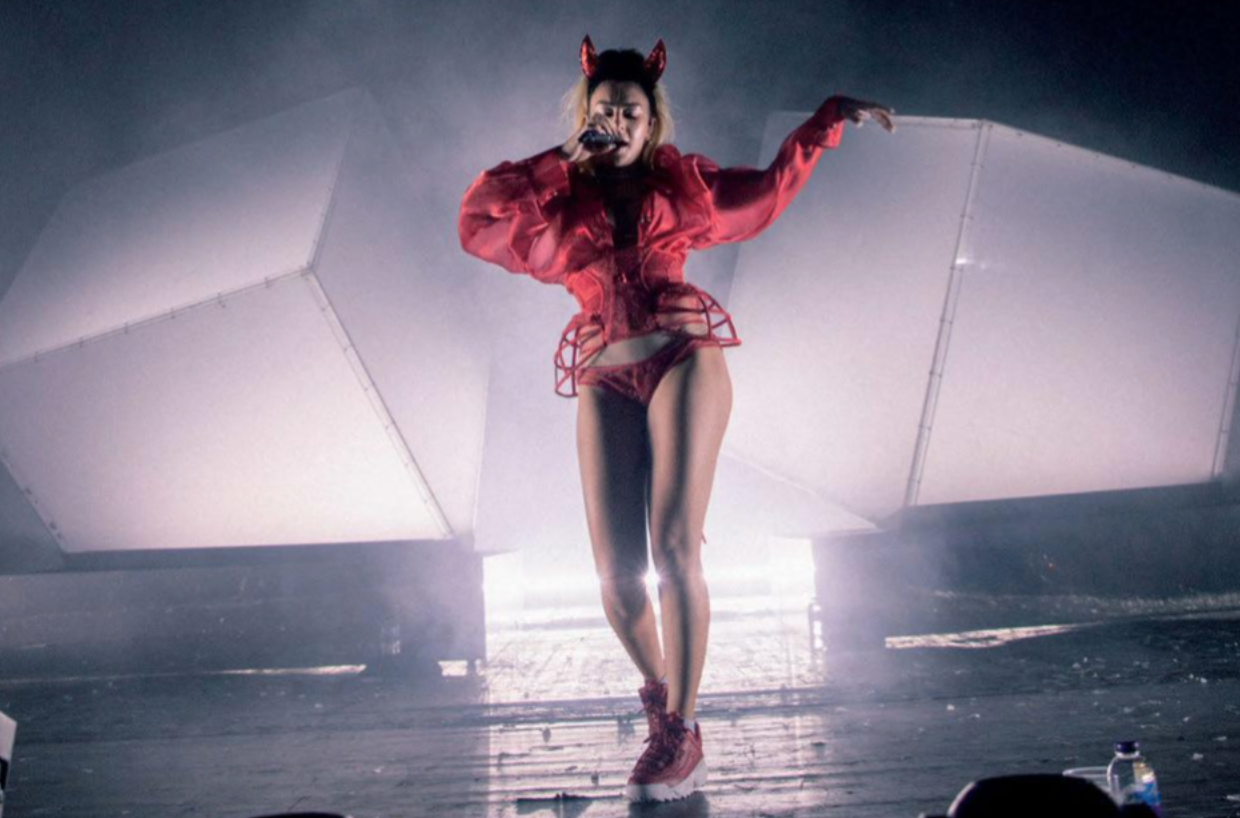Charli XCX onstage. Photo courtesy of Henry Redcliffe/Issuu.
LEAH OLLIE | STAFF REPORTER | lollie@butler.edu
To many a new musical artist, fame and fortune are promised conditionally through major record label contracts and management commitments. However, rising pressures from management and fans alike, overexposed personal lives and rigorous industry expectations all merge to create an environment that is not conducive to creative growth, much less personal fulfillment. The pressures that face musical artists are neither novel nor ancient, but rather a culmination of cultural and financial constraints that create unattainable standards for both fans and performers.
In recent years, artists and their brands have been perceived as larger-than-life projections of the humans behind them. Charli XCX, Mitski and Lizzo have spoken out about parasocial relationships — one sided psychological connections from their audiences — acknowledging that their negative impact is at an all time high. Pressure to be seen as relatable and accessible to anyone has become an integral element of an artist’s image and a key factor in their public-facing likability — especially in regards to social media engagement.
Vulnerable lyrics, intimate social media presences and high levels of fan engagement all contribute to the brand of a “relatable” artist. Madelyn Rogers, sophomore music industry studies major, has noticed the use of “relatable content” generated by artists to connect to fans on a personal level.
“In order to survive [the clutter of the music industry], [artists] have to unapologetically be themselves, which is something that is making the music industry become a lot more genuine than it has been in the past,” Rogers said. “[Artists] are writing [more explicitly] about their own experiences like love and sadness, all of these different things that people can relate to, and then people are appreciating those songs.”
However, problems arise when artists with large audiences and publicized lifestyles can no longer connect with listeners on an intimate level due to their popularity. Fans may feel a loss of connection, and artists may feel suffocated by the emotional expectations of thousands who adore them. Artists such as Taylor Swift have spoken out about the struggles that come with a highly commercialized music career in regards to privacy and personal rights. When superstar artists begin to recognize these issues, some withdraw from their public-facing career, prioritizing personal boundaries over mass social media exposure and fan interaction.
Elizabeth Brocksenbaum, sophomore arts administration major, sees the transformation of artists from nuanced people to niche brands as a method of gaining profit for management teams.
“[As an artist,] you’re catering to larger-name record labels and saying, ‘Okay, I’m going to write this kind of genre, I’m going to write these kinds of songs to gain this publicity— publicity for money,’” Brocksenbaum said. “There’s this complexity and stress of keeping up with what pays.”
In terms of financial freedom from record labels, murky waters await many new artists. Minimal payoff from streaming services and the recent pandemic-related pause on touring have caused financial insecurity for independent artists. Some — such as Grammy winner Jon Batiste — are finding their footing to begin touring again and support themselves fully.
Ellie Flowers, senior music industry studies major, recognizes the financial constraints that often limit performing artists.
“Finance is always going to be a pressure for younger artists,” Flowers said. “A lot of people need to realize that most people who go into music do not make much, if at all, any money from it.”
In order to support themselves financially, artists may endure exploitation and objectification at the hands of management corporations. Rock band The Killers sued Braden Merrick — their former manager — for multi-million dollar damages and mismanagement after the dissolution of his working relationship with the band. Such instances often contribute to commodification of the artist in an industry based upon their genuine creativity, a paradoxical dilemma that will face artists for years to come.
Flowers also worries about the future implications of media monopolies and what effects they will have on artistic expression — particularly in regards to media conglomerates.
Gradually, record labels have forced artists into enticing management contracts in exchange for mainstream success. The “big 3 record labels” — Sony BMG, Universal Music Group and Warner Music Group — manage a large portion of music production for popular artists, heightening the exposure of the artists signed to such labels and eliminating opportunities for smaller ones.
In such a intense industry, artists are finding new ways to connect to both their passion and dedicated audiences. Fan listening sessions, virtual performance opportunities and boundaries regarding personal privacy can help to heal artists’ relationships with the public and those who aim to support their endeavors. Audiences and artists alike can only hope that a new era for music and media will shift to prioritize the well being of creators, as well as fostering creative innovation.



